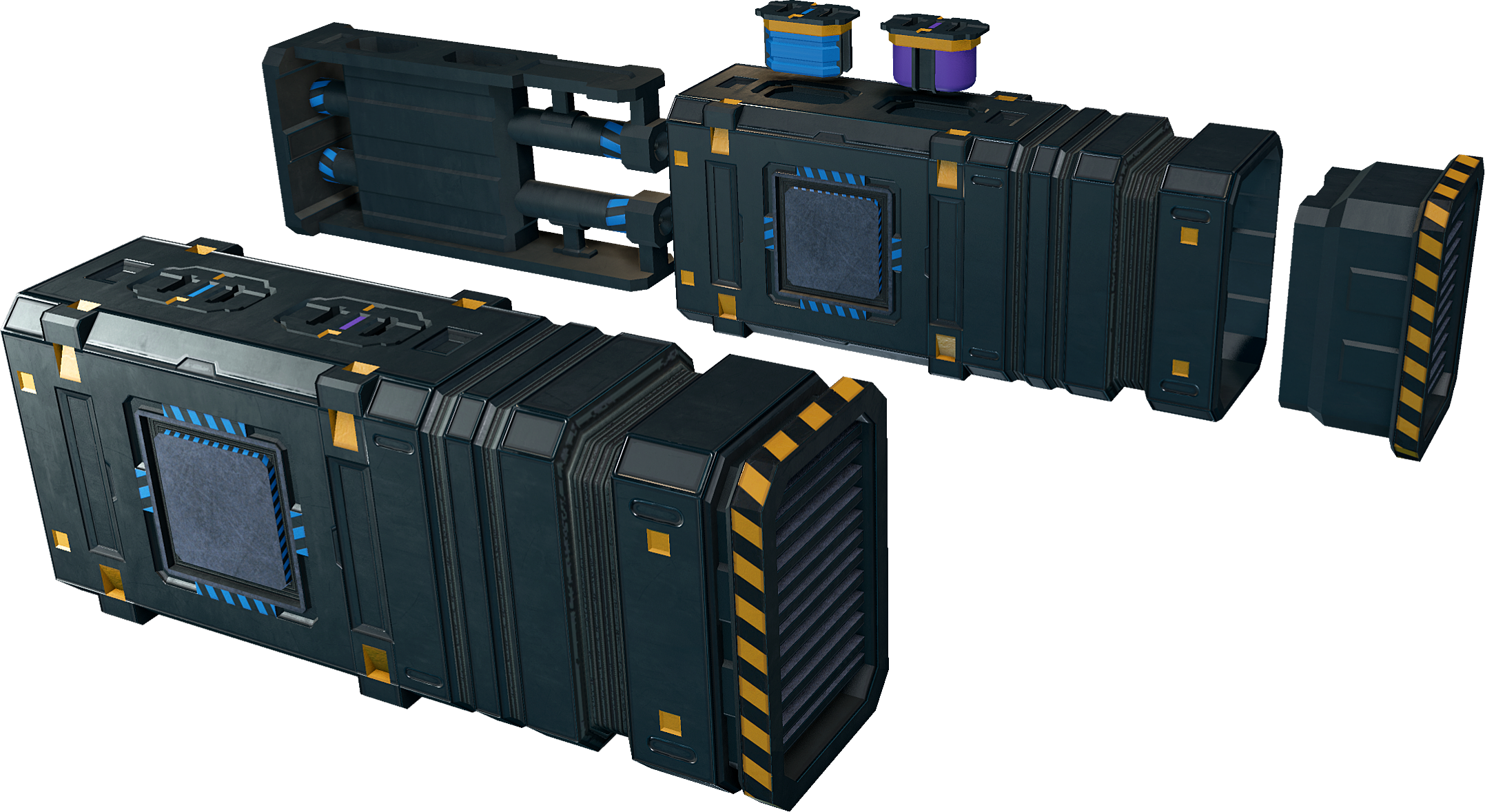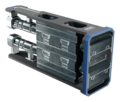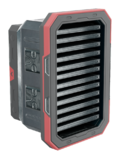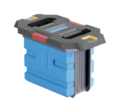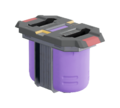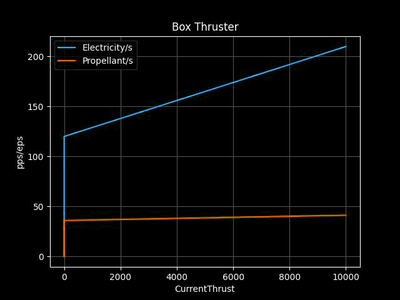Difference between revisions of "Box thruster"
m (Text replacement - "<section end=infobox/>" to "") |
m (Text replacement - "<section begin=infobox/>" to "") |
||
| Line 1: | Line 1: | ||
{{Otherlang2 | {{Otherlang2 | ||
|jp=ボックススラスター | |jp=ボックススラスター | ||
}} | }}{{SB Infobox Begin | ||
|{{SB Infobox Header | |{{SB Infobox Header | ||
|image=[[Image:Starbase_devices_thrusters_box.png]] | |image=[[Image:Starbase_devices_thrusters_box.png]] | ||
Revision as of 13:53, 25 June 2021
Box thrusters are a type of thruster that produce significantly more thrust than triangle thrusters, at the expense of nearly double the electricity intake. They are most commonly found working as the main thrusters of civilian ships.
Basic information
Box thrusters are composed of five distinct components:
- The body, which houses the other components and provides convenient mounting surfaces.
- The chamber, which burns propellant to produce thrust.
- The nozzle, which channels the exhaust out of the chamber (thus producing thrust).
- The electricity converter, which converts power from generators and batteries into power usable by the thruster.
- The gas converter, which prepares propellant to be burnt.
Unlike triangle thrusters, box thrusters do not have a resource-sharing port, and cannot be placed adjacent to one another in order to share power or propellant. Each box thruster must have its own device base with its own connection to the power and propellant networks in order to function. Despite this, and though they require significantly more space, box thrusters remain a popular choice as they produce considerable thrust per unit (500,000 thrust).
Device fields
| YOLOL field | description | range |
|---|---|---|
| ThrusterState | Requested output of the thruster | 0 - 10 000 |
| ThrusterCurrentThrust | Current output of the thruster | 0 - 10 000 |
To learn more about how to use fields, consult these wiki pages:
